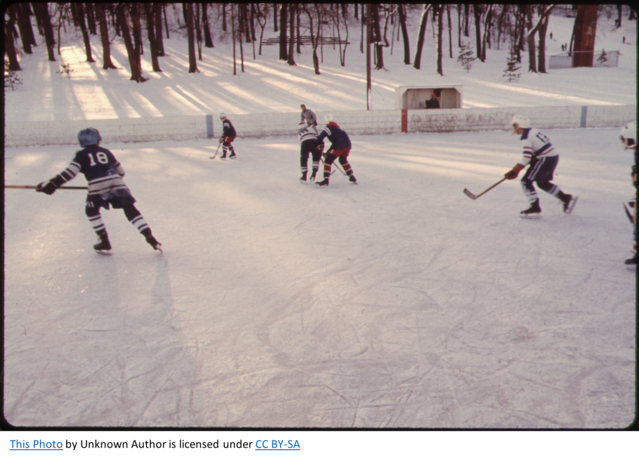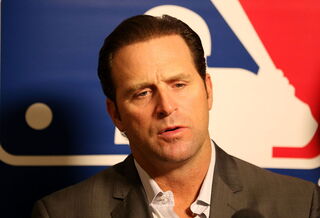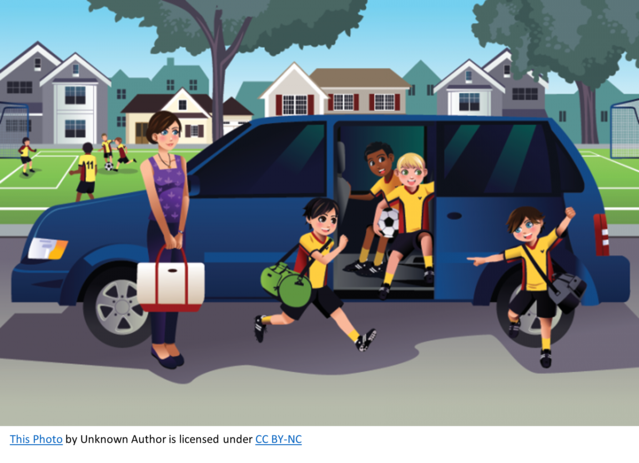Sport and Competition
Stop Coddling Your Young Athlete
A Personal Perspective: How snowplow parenting disrupts child maturation.
Posted December 26, 2021 Reviewed by Lybi Ma
Key points
- Snowplow parenting is pervasive and robs kids of experiences that promote growth and maturity.
- Today's youth lag behind young people from the early 1970s on several developmental measures.
- Kansas City Royals manager Mike Matheny demonstrated what adults could do to put the brakes on over-involved sports parents.

Sports kids coddled by parents—again! This time at a youth hockey practice.
Eight and nine-year-old boys and girls just finished practice and were preparing to go home. Instead of the budding Wayne Gretzky’s and Kendall Coyne’s taking off skates and packing-up equipment bags themselves, every observed mom or dad did it for them with zero assistance from their kids.
While parents hurriedly wrestled skates off tiny feet, the kids passively sat by, allowing their personal valets to do it for them. One boy munched a leisurely post-practice snack while scrolling through his phone, oblivious to dad’s efforts.
If they can skate for two hours under their own power, why can't they take off their skates by themselves and carry equipment bags to the car? That’s what youth hockey players did a generation ago.
“From the time I was six or seven years old, my parents dropped me off, and I carried my own equipment bag in and out of the rink,” reported a current youth coach, now in his forties. “I put on my skates and took them off by myself. Sometimes a coach, or rink attendant, would help tighten skates, but only if I asked, which I didn’t do too often. The other kids did the same.”
Several other former youth hockey players reported the same self-reliance.
Watching parents get in the way of their child’s maturation and ownership of life is upsetting and jarring.
Such behavior is well-intended and would probably be defended by mom and dad perpetrators as a parental duty. But whose interests are really being served, the child’s or the adult’s urge to snowplow? My bet is on the latter.

Snowplow parenting (also known as bulldozer or lawnmower parenting) is when parents remove potential obstacles from a child's path so they don't experience pain or failure. The very experiences that spur and produce growth and maturity.
Why It’s a Problem
Such coddling cripples emotional maturation.
According to several longitudinal studies, today’s 25-year-olds are at the developmental level of 18-year-olds from the early 1970s (Twenge, 2017). The same studies revealed that today’s 18-year-olds have the maturity level of 13-year-olds from the ‘70s. Twenge attributes this maturational lag in large part to over-involved parents doing too much for their children.
Popular media is full of stories about college kids lacking basic life skills and struggling with independence and the snowplow parents who produced them. Campus counseling centers are overwhelmed trying to help them grow up, which should have happened before high school.
Check out The New York Times bestseller, How to Raise an Adult: Break Free of the Overparenting Trap and Prepare Your Kid for Success (Lythcott-Haims, 2015) for a thorough look at this problem and solution. Numerous other books and articles can be easily found,
Fighting the Trend
Thankfully, some adults insist on young athletes doing for themselves. Retired Major League pitcher Matt Guerrier, a youth and high school baseball coach in Birmingham, Alabama, is one such individual.
“Parents came into our dugout and started packing their kids’ equipment bags after a game,” Guerrier shared. “I threw them (the parents) out of the dugout.” “They’re not three years old. They’re nine,” he scolded the parents. “They can pack their own equipment bag.”
Such coddling behavior was rare a generation ago. Dugouts, benches, and skating rinks were devoid of coddling parents—they knew their place. Kids were dropped off at sports activities and allowed to fend for themselves. Believe it or not, they were able to put on and take off their own equipment—including skates—pack their equipment bag, and carry it to the car by themselves.

Future Hall of Fame baseball manager Mike Matheny had his say about modern-day sports parents. While not a sport psychologist or child development researcher, he probably knows a little bit about encouraging the growth of young people through sports with nine years of MLB managing under his belt, including seven with the St. Louis Cardinals and two with his current team, the Kansas City Royals.
Matheny coached his 10-year-old son’s baseball team between his 17-year Major League playing career and MLB managerial stint. A letter he sent to parents of his pre-teen athletes went public—and virile—triggering his writing a book, The Matheny Manifesto: A Young Manager’s Views on Success in Sports and Life (2017).
“I always said that the only team I would ever coach would be a team of orphans,” Matheny unabashedly began his letter to team families. “The reason for me saying that, I have found that the biggest problem with youth sport has been the parents.”
I included all parenthetical material included in the below Matheny quotes.
“I think that it is best to nip this in the bud right off the bat,” Matheny continued.
The concept that I am asking all of you to grab is that this experience is all about the boys (kids). If there is anything about it that includes you, we need to make a change of plans. My main goals are as follows: 1) To teach these young men how to play the game the right way; 2) To be a positive impact on them as young men; 3) Do all this with class.”
“I believe the biggest role of the parent is to be a silent source of encouragement,” elaborated Matheny.
I think if you ask most boys (kids) what they would want their parents to do during games, they would say ‘nothing.’ Once again, this is all about the boys (kids). I believe that a parent feels that they must participate with loud cheering and ‘come on, let’s go, you can do it,’ which just adds more pressure to the kids.
His thoughts on what youth athletes want from parents are spot-on. Kids repeatedly communicate their desire for parental silence at athletic events to me in my roles as coach and sports psychologist. A future post will focus on the verbal chatter of sports parents.
Matheny advised:
I would like for these boys (kids) to have some responsibility for having their own water, not needing you to keep running to the concession stand or having parents behind the dugout asking their son (kid) if they are thirsty, or hungry, or too hot. I would appreciate it if you would share this information with other invited guests—like grandparents.
Suggestions for Parents
Parents are often heard throwing around terms such as resilience, grit, mental toughness, and confidence. They want to know how those qualities can be instilled in their kids.

As a starting point, how about allowing young athletes to do things for themselves with minimal assistance from adults?
Do kids learn to ride their bicycle by a parent riding it for them? Are academic self-reliance and discipline attained by parents tracking and doing homework Is toilet training mastered by adults doing the potty seatwork? Parents certainly have a role in teaching all of that, but not by doing it for their children.
Let kids communicate with coaches, pack, and unpack their equipment bags, track their sports schedules, make their own transportation arrangements if the family is unable to provide them. Maybe allow them to walk or ride bicycles to athletic activities.
If kids learned to do all that 20, 30, and 40 years ago, why can’t they do that today? They could and would if adults let them.
Please--with all due respect--get out of the way and let your child grow up.




